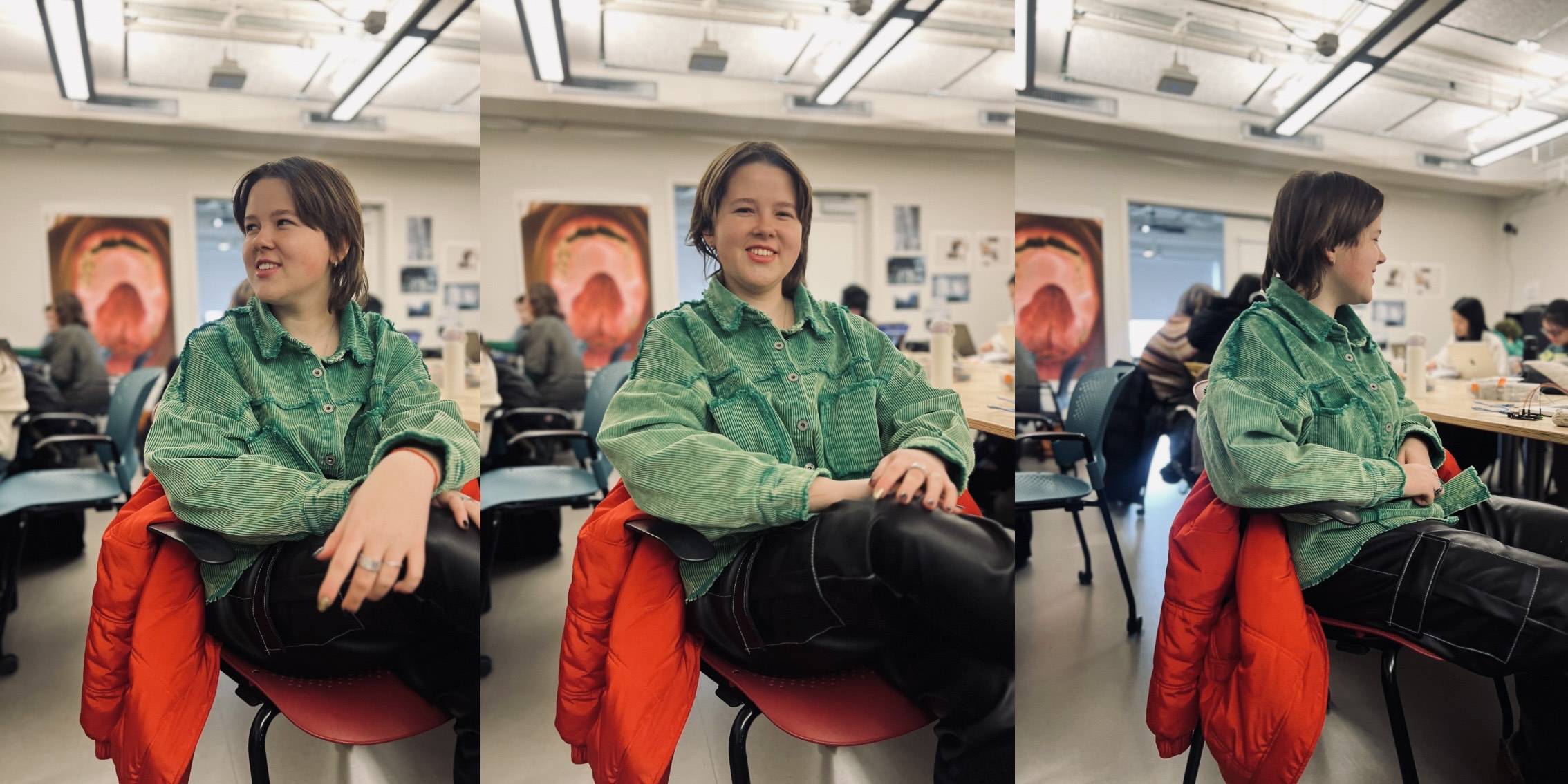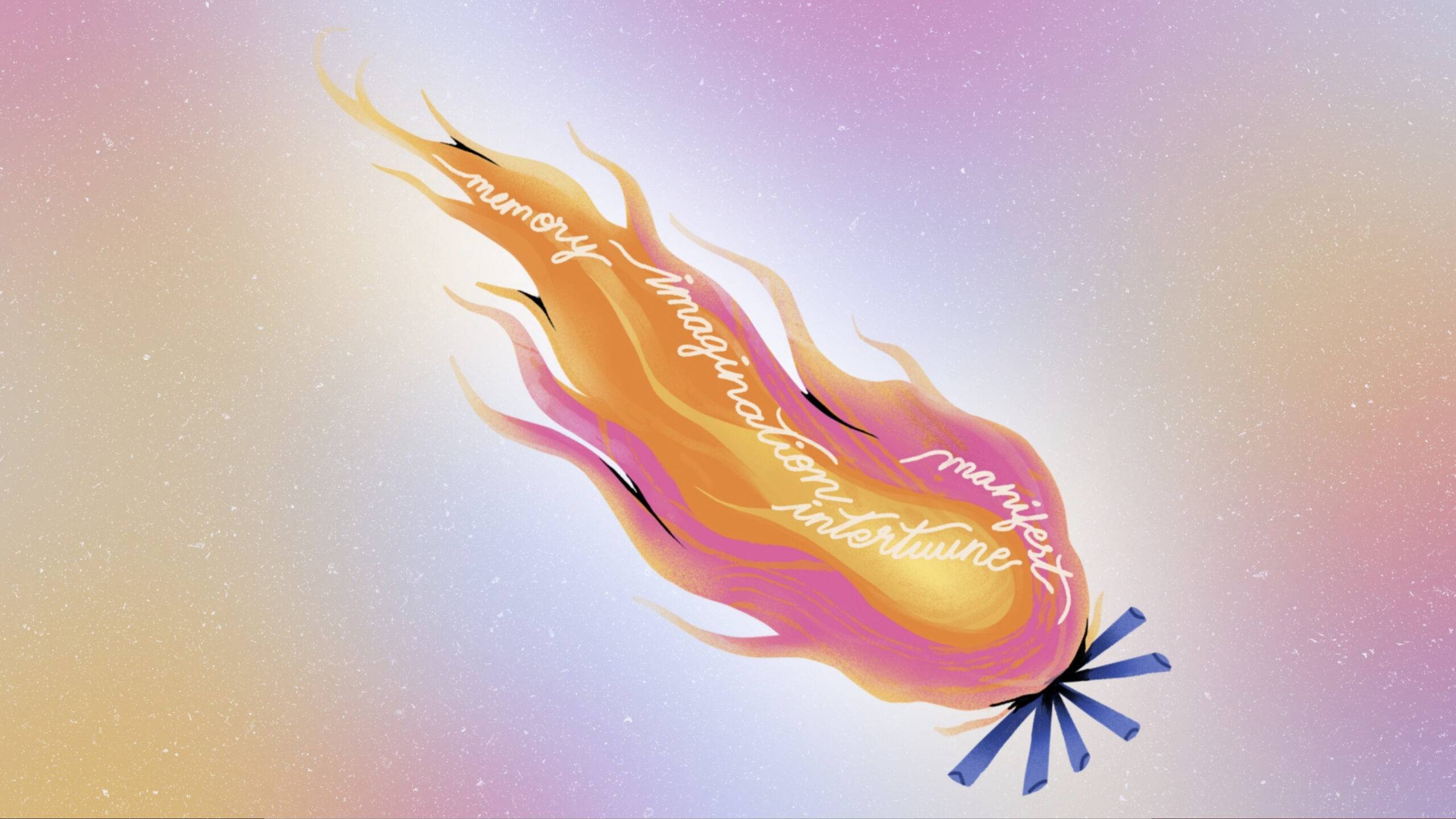
Ruth Needleman tells NWI Resistance about the man who had threatened to buy the billboard as an act of retaliation. “‘I’m going to buy that billboard, bitch!'” Ruth reads aloud. The news is met with cheers and laughter. Photographed by Georgia Hampton.
“I call it ‘The FBI intercept,’” says Ruth Needleman, laughing. Our previous phone call ended abruptly, which I had taken as some issue with cell service. Ruth had other ideas. Still laughing, she adds, “I’m pretty sure all my phones are surveilled.”
Ruth Needleman, a School of the Art Institute of Chicago (SAIC) Liberal Arts professor, describes herself as “an old fogie who hates injustice.” The course she teaches each spring semester, “Social Movements from a Global Perspective,” explores the history and growth of social movements as well as the many elements than get in their way. She’s an expert on these themes because she has lived them. She tells me casually how she’s been an activist for over 50 years, and has worked alongside César Chavez and the government of Salvador Allende. “I’ve been around the block a few times,” she says, “and I still hate injustice!”
Currently, Ruth and the regional coalition she co-organizes, NWI Resistance, are focusing on immigrant deportations at the Gary/Chicago International Airport. Immigrations and Customs Enforcement (ICE) has deported over 12,000 immigrants out of the Gary airport since 2013. “I think people have to make it a constitutional necessity to not let this shit go on,” Ruth says, referring to this issue.
A few weeks ago, in an effort to voice their anger, NWI Resistance purchased a billboard on the way to the Gary airport that reads “STOP GARY AIRPORT DEPORTATIONS! FAMILIES BELONG TOGETHER!” According to Ruth, the billboard has already gotten quite a bit of attention. “I posted it and someone commented ‘I’m gonna raise the money to buy that billboard, bitch!’” she says, laughing.
Ruth Needleman is 74 years old with wispy blonde hair and wire-rimmed glasses. She’s short, shorter than me, and I’m 5’3”. At first glance, she could be anyone’s grandmother, any woman on the subway. She could be a Republican. But the moment she speaks, sparks shoot from her mouth, her eyes. She is passionate; she is furious.
“I didn’t always know why I hated injustice as much as I do,” she says, adding that over time she’s identified a multitude of reasons.
“I’m particularly angry at my family,” she says. “They didn’t like me, they rejected me, they made me feel worthless.” But Ruth adds that fighting for social justice was the way to channel her anger into something productive. “I was always better at fighting for other people than myself, but that’s okay,” Ruth tells F. “I’ve gotten so much strength and power from seeing people realize that they were something more than what they thought.”
NWI Resistance meets often, and Ruth invited me to their January 12th meeting. “You’ll be well-fed!” she had assured me, adding that the meeting was being catered by Mexico Lindo, a Hammond, IN restaurant whose owner and employees had been detained by the Immigrations and Customs Enforcement (ICE) until recently.
By the time I arrived, the room was already filling up. Around 20 people were seated, of a variety of racial backgrounds and, interestingly, ages. There were a handful of people in their twenties, maybe younger, and men and women all the way up to their seventies. One man who introduced himself as Pastor Charlie Strietelmeier had brought his dog, a delightfully round dachshund named Longfellow.
Even those who trickled in from the snow well after the meeting began received warm welcomes. Latecomers were ushered in and met with a whispered “Hey! Nice to see you! Come sit here!”
When I ask Ruth about the surprising sense of camaraderie among the attendees, she offers me a simple explanation: “When you meet together at the airport in the freezing cold or the pouring rain, surrounded by SWAT teams, local police, and county sheriffs, you bond.” She laughs.
Ruth began the meeting by asking everyone to introduce themselves and say the one thing that they’re angriest about. Some people referred to larger issues like racism, others mentioned more specific issues. Two chose not to answer. The sentiment was the same: Things are terrible, but if we don’t fight to change it, no one will. Each comment was met with hums of agreement or silent nodding.
Ruth tells me that asking questions like that is a big part of fostering strength in an activist organization. “You have to build relationships with people, and that means you can’t just lecture, or give people things to do,” she says. “You have to know what gets someone angry, what makes them laugh, what they really care about. That’s the entryway for organizing.”
When asked about how the organization stays optimistic when fighting against obstacles as enormous as deportation, Ruth quickly says she has no choice. “Hopelessness is paralysis and inaction,” she says. “If you don’t think what you do will make a difference, you won’t do anything. If you believe that what you do will make a difference, you will work harder.”





















